Frances McDormand of Nomadland on the road less travelled
Mar 12, 2021
In the 24 years after she won her first Oscar for Fargo, FRANCES MCDORMAND turned down most interviews and stayed as far away from the limelight as possible. So in the rare moments the actress speaks out about a film, you know it’s one with a message she firmly believes in.
She talks to KAITLYN LAI about her dual role as lead actress and producer of the critically acclaimed Nomadland, working with Chloé Zhao, and hitting the road with real-life nomads
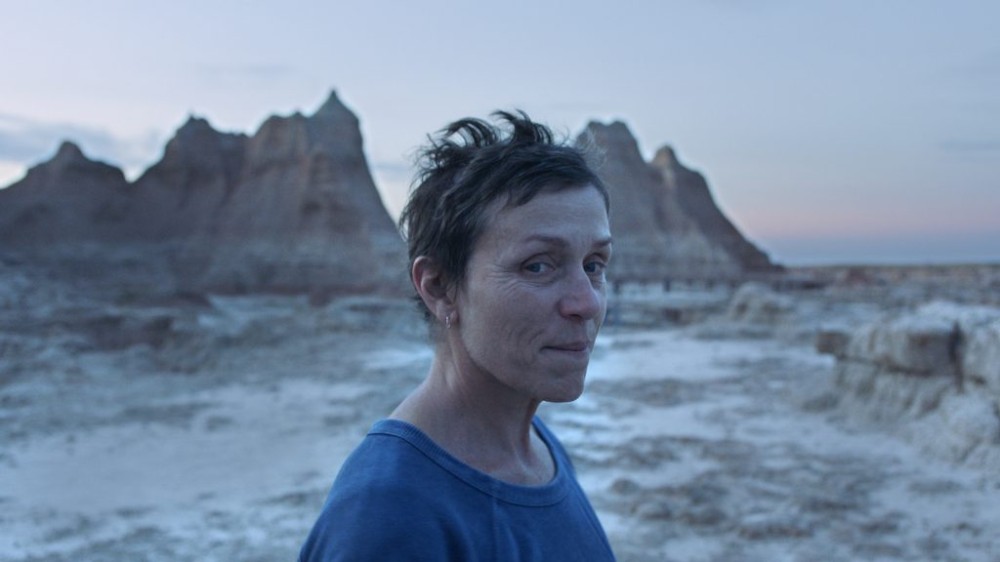
“In my forties, I told my husband that when I turned 65 I was going to change my name to Fern, smoke Lucky Strikes, drink Wild Turkey and hit the road in an RV.”
At 63, Frances McDormand has turned that vision into reality with Nomadland, except this version of Fern rolls her own smokes and drinks tequila instead of whiskey. Based on Jessica Bruder’s non-fiction book Nomadland: Surviving America in the Twenty-First Century, the 2020 film follows 61-year-old jobless widow Fern as she sets off for a new life on the road after her hometown becomes deserted following the closure of the local mine. Produced by McDormand and directed by Chloé Zhao, Nomadland has already been awarded the Golden Lion for best film at the Venice Film Festival, the People’s Choice Award at the Toronto International Film Festival, and Best Director and Best Motion Picture – Drama at the Golden Globes.
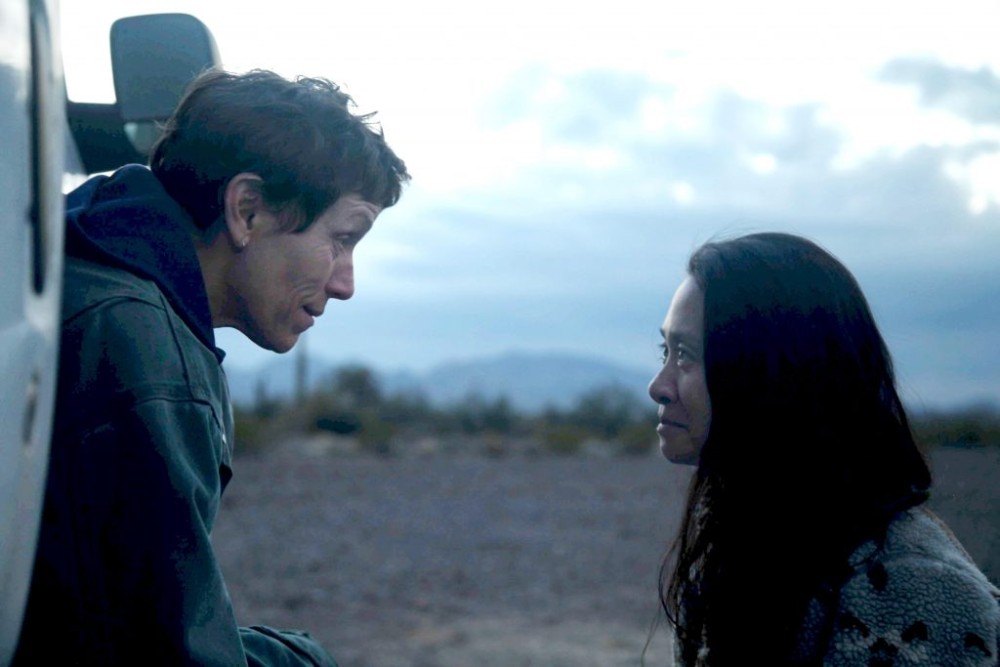
Although the actress jokes about Fern being a fantasy, at a closer glance you would find traces of Fern’s identity in McDormand’s. Raised in an American working-class family, McDormand grew up travelling frequently across the Midwest and the South in a nomadic fashion for her father’s job. She decided to turn Bruder’s book into a film after her romanticism about hitting the road in a van was dispelled by the author. And, after seeing The Rider, McDormand knew that she had found the director of her new film.
See also: Get to know Chloé Zhao, the first Asian woman to win a Golden Globe
“I was deeply moved [by The Rider] and wondered out loud, ‘Who’s Chloé Zhao?’ It was one of the best things I’ve seen in many a day,” McDormand recalls. “And, as a producer, I was drawn to a female director who had used the classically male or Western genre tropes to tell a more universal story of triumph over adversity and the will to survive and adjust one’s dreams. So there was a serendipitous lightning bolt.”
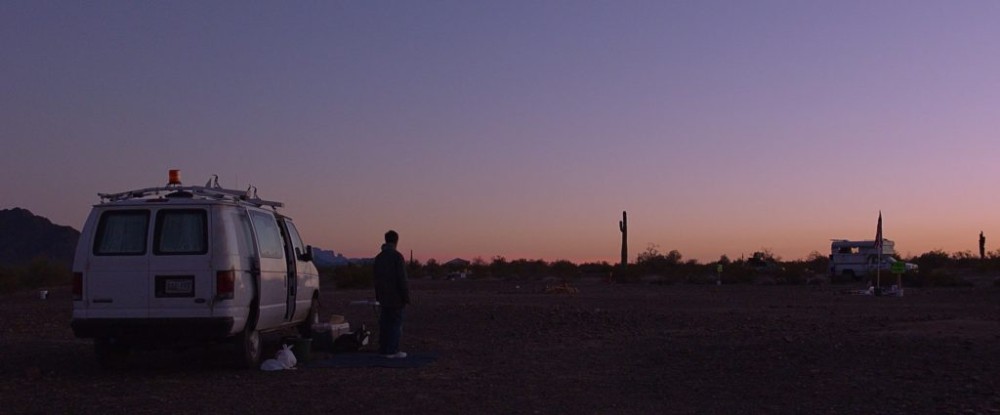
To make Nomadland, McDormand, alongside David Strathairn, joined non-professional actors Linda May, Swankie and Bob Wells on the road. They are real-life van-dwellers Bruder met while researching her book, and were cast by Zhao to play themselves in the picture.
Telling the story of other people’s lives by being inside it whilst they are living it at the same time proved to be challenging, even for a film veteran such as McDormand. “The biggest thing during this process was just to try to sit still, keep my mouth shut and to listen,” she says. “I think [listening] is a part of every professional actor’s life and I learned to use that skill a lot on this film because it was about hearing the stories of the van dwellers, my colleagues, not trying to tell mine.”
Zhao approached the characterisations of McDormand’s and Strathairn’s Fern and Dave the same way she did with the non-professional actors. “She spent a lot of time with us in our homes, with us and our families, crafted our characters and our film friendship from the truth of our lives,” McDormand says.
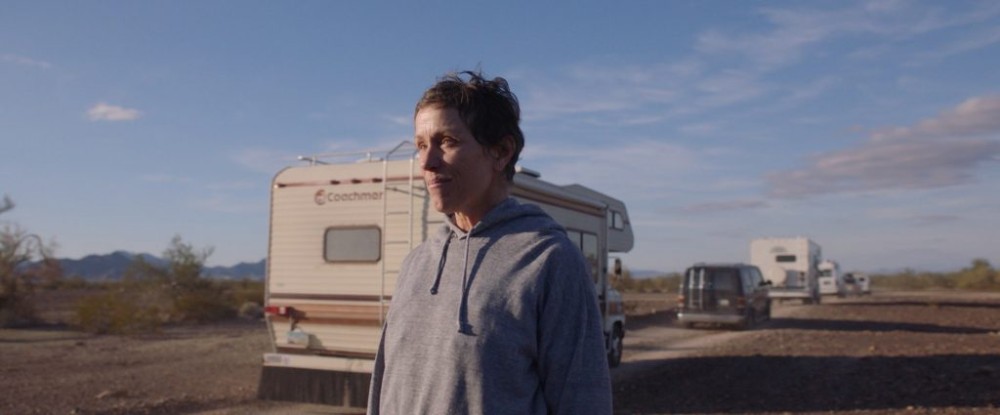
Although it took some time for the trio to find a comfortable balance in their individual methods of working, together they constructed a touching friendship between Fern and Dave, a relationship diverted from the cliché romantic story.
“We liked the idea of walking the sentiment right up to the edge of sentimentality and then not satisfying the audience with that,” McDormand says. “I think, actually, because I’m in my 60s and David’s in his 70s, it’s exciting to see a romantic relationship between two mature adults that doesn’t go the way of sappy sentimentality.”
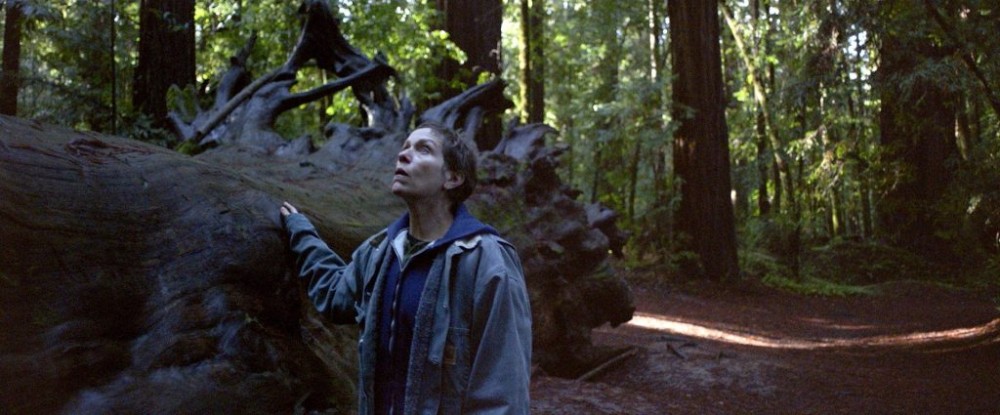
While she relates to the working-class American woman she has played many times on screen, her characters have also given her the space to imagine the different lives she could’ve led.
“I’m from a working-class background and, you know, storytelling is a wonderful game of ‘What if?’ What if I hadn’t had the opportunity to go to college and graduate school? What if I hadn’t had the opportunity to partner with a spouse who believed in my potential and helped me realise my dreams? What if I hadn’t met my son and had the opportunity to become a fuller human being? What if I had never seen The Rider and met Chloé Zhao? What if I had looked in the mirror and not been able to recognise myself as the women who were being represented in fashion magazines and in movies? What if that had stopped me from pursuing acting?”
On the exponential growth of road communities in recent years, McDormand admits that the phenomenon was born out of long-standing economic inequalities.
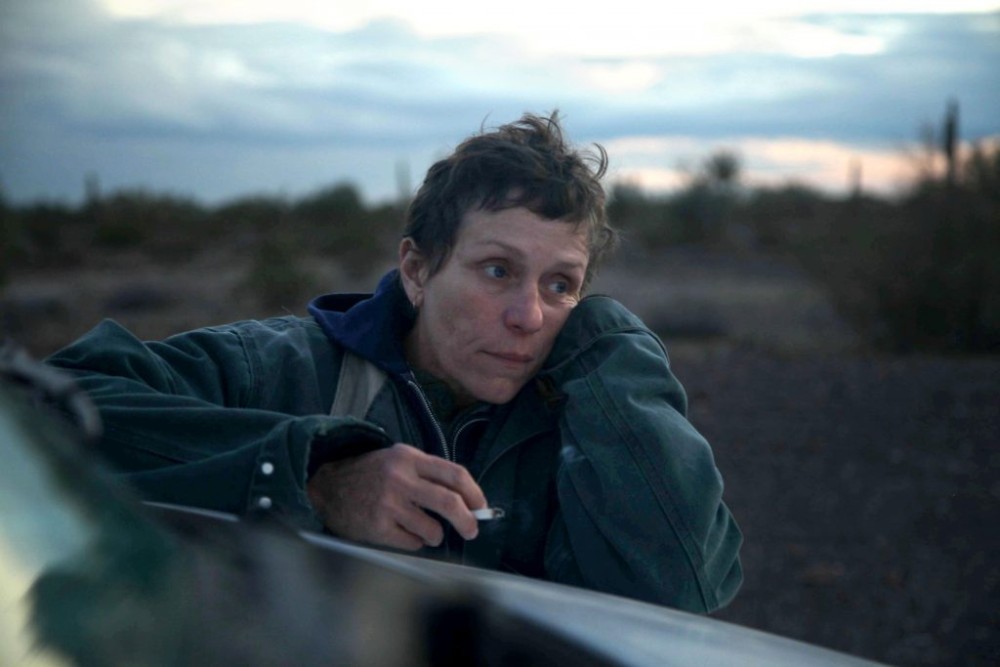
“There’s a disparity between who ‘has’ and who ‘hasn’t’, and how we’re effectively taking care of each other and making the world equitable,” she says. But McDormand thinks there is more to that today – many are also looking for freedom in a world under lockdown.
“People are answering their wanderlust and reacting to their feelings of confinement by going on the road, even for a couple of weeks,” the actress continues. “I think that the human species is evolving and movement is part of it.”
As a film producer and as Fern, McDormand ultimately hopes to be a guide for her viewers into the world of these communities through Nomadland. “We think of ourselves as docents leading you to a community made up of people who’ve made some very difficult decisions for themselves – and Chloé’s telling their story.”
All images: Stills and scenes from the making of Nomadland, filmed across the Western states of the US
This article was originally published in the March 2021 issue of #legend magazine. See all issues



























